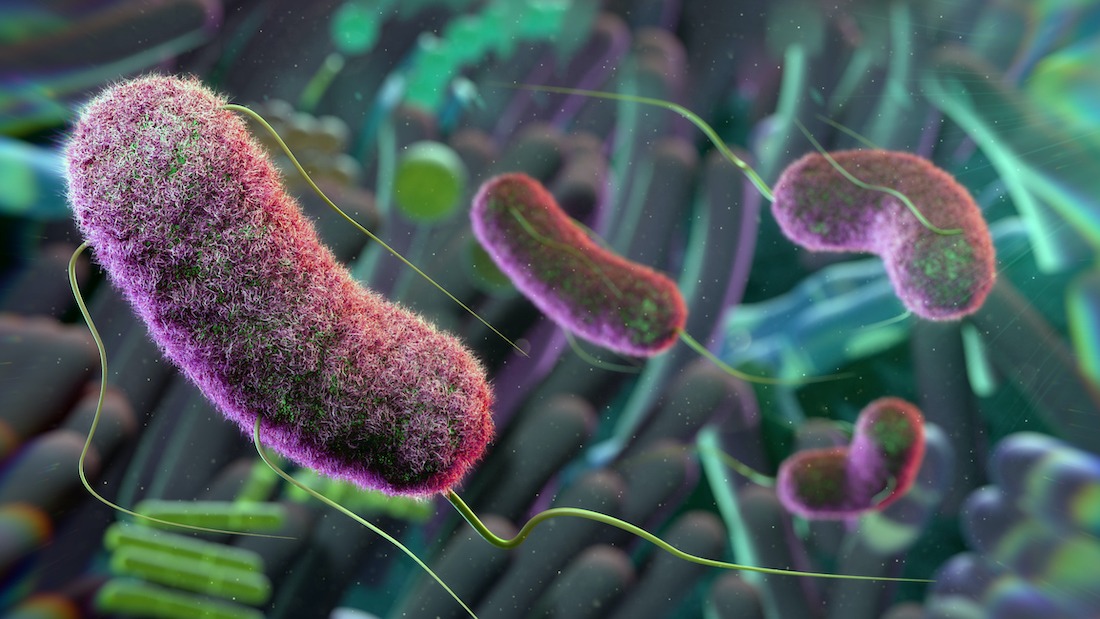The infant gut microbiota plays a crucial role in shaping the immune system, influencing how the body responds to infections, allergies, and chronic diseases later in life.
From birth, an infant’s microbiome begins developing, influenced by factors such as mode of delivery, type of feeding, antibiotic exposure, and maternal health. These factors determine whether the infant will have a balanced microbiome that supports immune tolerance and protection or an imbalanced microbiome linked to inflammatory diseases (Zhang et al., 2022; Selma-Royo et al., 2020).
The type of birth significantly influences the initial microbial colonization of an infant.
Vaginal delivery exposes newborns to maternal vaginal and fecal bacteria, leading to a microbiome dominated by Bifidobacterium, Lactobacillus, and Bacteroides, which are essential for immune development (Zhang et al., 2022). Cesarean section (C-section) delivery, however, bypasses this exposure, resulting in a gut microbiota enriched with Staphylococcus, Clostridium, and Enterococcus—bacteria associated with higher risks of allergies, asthma, and metabolic disorders (Selma-Royo et al., 2020). A study by Adamczak et al. (2024) found that C-section-born infants have lower levels of immune-regulating bacteria and a delayed maturation of gut microbiota, which may contribute to weaker immune responses in early childhood.
In terms of feeding, during the first months of life newborns can be fed with breast milk, formula milk or alternating both feeding sources.
Breastfeeding provides bioactive components that directly influence gut microbiota composition and immune system development. Among other things, breast milk contains: human milk oligosaccharides (HMOs), which promote the growth of Bifidobacterium (known for its role in modulating inflammation and protecting against infections); IgA antibodies, which coat the gut lining and prevent harmful bacteria from colonizing the intestines, reducing the risk of infections and food allergies; proteins like S100A8 and S100A9, that help regulate both gut microbiota composition and immune function. (Adamczak et al., 2024, Ximenez et al., 2017, Willers et al., 2020).
Formula-fed infants have a more diverse but less stable microbiome, often with higher levels of Bacillota and Pseudomonadota, which are linked to increased inflammation and metabolic issues (Selma-Royo et al., 2020).
Microbial composition is directly linked to the production of certain compounds. As a result of their metabolism, some bacteria present in the infant gut microbiota, such as bifidobacteria, produce short-chain fatty acids (SCFAs) which play a key role in training the immune system. SCFAs:
Promote the development of regulatory T cells (Tregs), which help prevent excessive inflammation and autoimmunity (Willers et al., 2020).
Strengthen the gut barrier, reducing the risk of conditions like leaky gut syndrome and food allergies (Stevens et al., 2022).
Infants with imbalanced microbiota (dysbiosis) have lower SCFA production, which is linked to higher risks of inflammatory diseases such as asthma, eczema, and inflammatory bowel disease (IBD) (Zhang et al., 2022).
Antibiotics, though sometimes necessary, can disrupt the developing gut microbiota and weaken immune defenses. A study by Stevens et al. (2022) found that early antibiotic exposure increases the risk of pneumonia due to altered immune responses in the lungs. Infants given antibiotics in the first year of life are at higher risk of obesity, diabetes, and allergies later in life due to microbiome disruptions (Selma-Royo et al., 2020).
While antibiotics can be life-saving, their overuse or misuse can lead to long-term immune dysregulation, emphasizing the need for cautious antibiotic use in early childhood.
The infant gut microbiota is a foundation for lifelong immune health. A healthy gut microbiota in early life is linked to lower risks of allergies, autoimmune diseases, and obesity (Adamczak et al., 2024). Imbalances in early microbiota increase susceptibility to chronic inflammatory diseases, such as Crohn’s disease and asthma (Zhang et al., 2022).
Studies suggest that interventions such as probiotic supplementation, prebiotic-enriched formulas, and vaginal microbiota transfer in C-section infants could help restore microbiome balance and improve long-term health outcomes (Selma-Royo et al., 2020).
By supporting healthy gut microbiota development through breastfeeding, minimizing unnecessary antibiotics, and considering microbiome-friendly interventions, we can help strengthen infant immunity and reduce the risk of chronic diseases.
References:
Adamczak, A., Werblińska, A., Jamka, M., & Walkowiak, J. (2024). Maternal-Foetal/Infant Interactions—Gut Microbiota and Immune Health. Biomedicines, 12. https://doi.org/10.3390/biomedicines12030490.
Selma-Royo, M., Calatayud Arroyo, M., García-Mantrana, I., Parra-Llorca, A., Escuriet, R., Martínez-Costa, C., & Collado, M. C. (2020). Perinatal environment shapes microbiota colonization and infant growth: impact on host response and intestinal function. Microbiome, 8(1), 167. https://doi.org/10.1186/s40168-020-00940-8
Stevens, J., Steinmeyer, S., Bonfield, M., Peterson, L., Wang, T., Gray, J., Lewkowich, I., Xu, Y., Du, Y., Guo, M., Wynn, J. L., Zacharias, W., Salomonis, N., Miller, L., Chougnet, C., O’Connor, D. H., & Deshmukh, H. (2022). The balance between protective and pathogenic immune responses to pneumonia in the neonatal lung is enforced by gut microbiota. Science translational medicine, 14(649), eabl3981. https://doi.org/10.1126/scitranslmed.abl3981
Willers, M., Ulas, T., Völlger, L., Vogl, T., Heinemann, A. S., Pirr, S., Pagel, J., Fehlhaber, B., Halle, O., Schöning, J., Schreek, S., Löber, U., Essex, M., Hombach, P., Graspeuntner, S., Basic, M., Bleich, A., Cloppenborg-Schmidt, K., Künzel, S., Jonigk, D., … Viemann, D. (2020). S100A8 and S100A9 Are Important for Postnatal Development of Gut Microbiota and Immune System in Mice and Infants. Gastroenterology, 159(6), 2130–2145.e5. https://doi.org/10.1053/j.gastro.2020.08.019
Ximénez, C., & Torres, J. (2017). Development of Microbiota in Infants and its Role in Maturation of Gut Mucosa and Immune System. Archives of Medical Research, 48(8), 666-680. https://doi.org/10.1016/j.arcmed.2017.11.007.
Zhang, H., Zhang, Z., Liao, Y., Zhang, W., & Tang, D. (2022). The Complex Link and Disease Between the Gut Microbiome and the Immune System in Infants. Frontiers in Cellular and Infection Microbiology, 12. https://doi.org/10.3389/fcimb.2022.924119.

